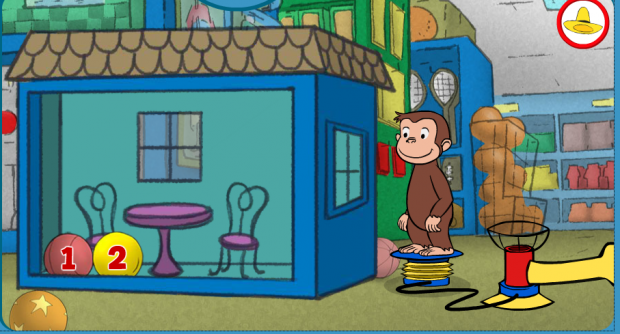By Nathan Maton
If kids are sweaty when they're done playing the educational game Monkey Jump, the game creators will be happy.
Sara DeWitt, vice president of PBS Kids and Drew Davidson, director of Carnegie Mellons' Entertainment Technology Center say games using motion sensors to give kids a workout while they learn is one of the next big trends in game-based learning for kids.
"This is the first time I've seen kids finish playing a game sweating and asking for water," DeWitt said, describing watching a playtest session of Monkey Jump at her SXSW presentation. The mix of exercise and educational content is a powerful combination for kids learning simple math or language skills.
In Monkey Jump, a game featuring Curious George created by PBS Kids, players first activate a camera that captures their movement. When they jump, Curious George pounds a pump that blows a ball into the air and a box that shows the view of the player through the Web camera. The balls then show a number helping kids learn to count. The game works by capturing motion from any computer Web cam, and does not require any motion sensor controller like the Kinect or Wiimote.
PBS Kids uncovered this combination through the PBS "funnel approach" to educational games research. DeWitt says that any time there's a promising new technology that can do something new to teach children valuable skills, they'll experiment, success or not. If it does well enough on a first test, they’ll continue the experiments and create a full product. So far these simple technologies seem to work better. DeWitt talked about an experiment that didn't go well, where kids had to rotate an augmented reality egg on a screen by rotating their hands in the air. Kids got extremely frustrated because their motions and the eggs response wasn't intuitive, so they ended the experiment ended.


